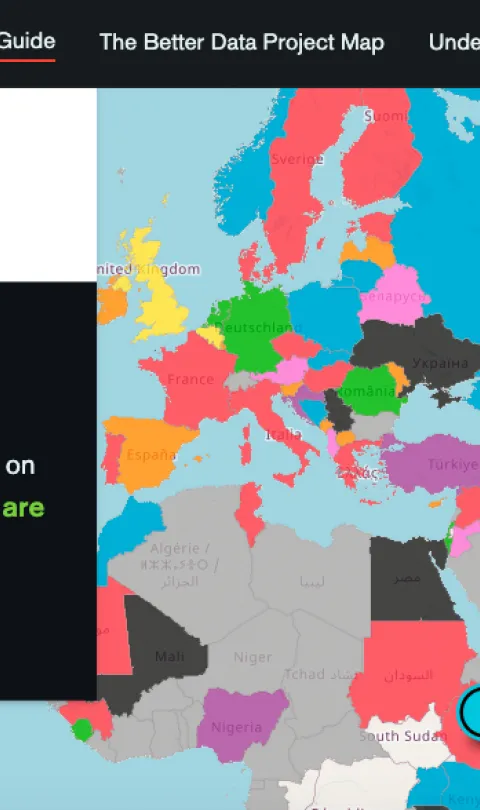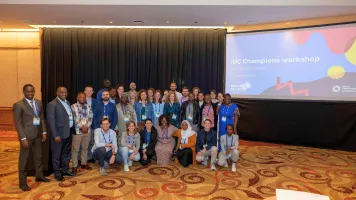Homeless data is noticeably absent from the United Nations Sustainable Development Goals (SDGs) and homeless populations are excluded from national and global statistics. Some of the most vulnerable people will, in fact, be left behind and unfortunately, not for the first time.
For many countries throughout the world, homelessness data is based on rough estimates, outdated census data, service bed availability, or rudimentary counts from major cities. Official numbers are often contested by frontline NGOs, and definitions of what qualifies someone as “homeless” vary not just across countries but sometimes within national borders.
At the Institute of Global Homelessness (IGH), we work with communities, countries, and international coalitions to define, measure, and sustainably reduce the number of people sleeping rough. We cannot do this work without robust data. Data should be explicit about which populations it counts; disaggregated to describe not only how large populations are, but also who they are; collected through consistent, transparent methodology; and, most importantly, used to hold accountable those with the power to affect change.
IGH joined the Inclusive Data Charter (IDC) to further our work in increasing the availability of inclusive and disaggregated homeless data and to connect with other organizations engaged in pushing for data that reflects the true realities of peoples’ lives.
Our Inclusive Data Action Plan
We are, therefore, pleased to launch our IDC Action Plan, which outlines how we will increase the measurement and definition of homelessness:
1. Through partnerships and advocacy, expand the number of cities and communities defining and measuring homelessness.
2. Engage with global leaders and communities to use data to make evidenced-based decisions for homeless programs and services.
3. Increase the collection and sharing of disaggregated homeless data through research and work with communities across the world.
Mapping and measuring homelessness as a global phenomenon has never been done. An absence of standardized definitions of homelessness and data collection methods and scarce international homeless data have which render cross-country comparisons impossible.
Through the Better Data Project, our organization collects and maps all available homelessness data. We also collect local definitions, where possible, to better understand how different countries frame and enumerate homelessness. The goal of the Better Data Project is to demonstrate where and how countries can improve on their enumeration methodologies including the use of clear definitions and collection of disaggregated. We hope that the Better Data Project can be the starting point for a worldwide database of steadily improving homelessness enumeration.
Our IDC action plan carries through to our other work. Through our A Place to Call Home initiative we've developed guidance and support for enumeration and partnered with thirteen cities in eleven countries to significantly reduce or end street homelessness. We worked with our partners in Rijeka, Croatia and Bengaluru, India to conduct homeless street counts and provided technical support to improve administrative data in Adelaide and Sydney, Australia.
The IGH Resource Hub collects and disseminates vital homelessness research from across the world, with a clear focus on effective policy and practice. This research will be leveraged into training modules with tools to collect disaggregated data that help cities and countries improve their data collection methods. These modules will also be folded into the IGH Community of Impact in which organizations and individuals from around the world are able to raise questions, highlight obstacles, and benefit from a global network of homelessness experts to overcome challenges in their local context.
Finally, IGH operates at the global strategic level via our work with the United Nations as a member of the Working Group to End Homelessness, a cohort of NGOs dedicated to ensuring homelessness is recognized and addressed on the global stage. To spotlight voices of lived experience of homeless from across the world at the United Nations, IGH supported the “Make Us Count” to advocate for their voices and experiences to inform strategy and solutions.
Our work to improve homeless measurement and definition, together with our commitment to the principles of the IDC and the IDC action plan, supports our ultimate goal to end street homelessness. With our partners, we look forward to increasing the availability of accurate and inclusive data at local, national and international levels. Join us at https://ighomelessness.org/.


